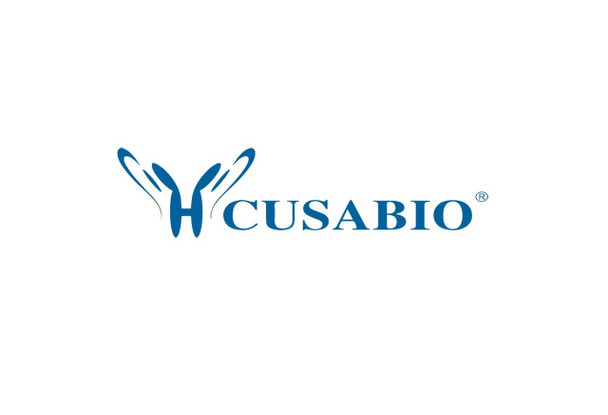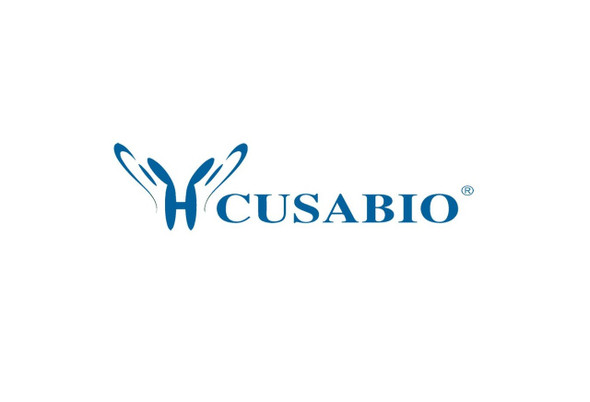Cusabio Virus & Bacteria Recombinants
Recombinant Human respiratory syncytial virus A Fusion glycoprotein F0 (F), partial | CSB-EP356041HPOa0
- SKU:
- CSB-EP356041HPOa0
- Availability:
- 3 - 7 Working Days
Description
Recombinant Human respiratory syncytial virus A Fusion glycoprotein F0 (F), partial | CSB-EP356041HPOa0 | Cusabio
Alternative Name(s): Protein F
Gene Names: F
Research Areas: Signal Transduction
Organism: Human respiratory syncytial virus A (strain A2)
AA Sequence: NITEEFYQSTCSAVSKGYLSALRTGWYTSVITIELSNIKENKCNGTDAKVKLIKQELDKYKNAVTELQLLMQSTPPTNNRARRELPRFMNYTLNNAKKTNVTLSKKRKRRFLGFLLGVGSAIASGVAVSKVLHLEGEVNKIKSALLSTNKAVVSLSNGVSVLTSKVLDLKNYIDKQLLPIVNKQSCSISNIETVIEFQQKNNRLLEITREFSVNAGVTTPVSTYMLTNSELLSLINDMPITNDQKKLMSNNVQIVRQQSYSIMSIIKEEVLAYVVQLPLYGVIDTPCWKLHTSPLCTTNTKEGSNICLTRTDRGWYCDNAGSVSFFPQAETCKVQSNRVFCDTMNSLTLPSEINLCNVDIFNPKYDCKIMTSKTDVSSSVITSLGAIVSCYGKTKCTASNKNRGIIKTFSNGCDYVSNKGMDTVSVGNTLYYVNKQEGKSLYVKGEPIINFYDPLVFPSDEFDASISQVNEKINQSLAFIRKSDELLHNVNAGKSTTNIMITT
Source: E.coli
Tag Info: N-terminal 6xHis-tagged
Expression Region: 27-529aa
Sequence Info: Extracellular Domain
MW: 58.9 kDa
Purity: Greater than 85% as determined by SDS-PAGE.
Relevance: During virus entry, induces fusion of viral and cellular membranes leading to delivery of the nucleocapsid into the cytoplasm. The fusogenic activity is inactive untill entry into host cell endosome, where a furin-like protease cleaves off a small peptide between F1 and F2. Interacts directly with heparan sulfate and may participate in virus attachment. Furthermore, the F2 subunit was identifed as the major determinant of RSV host cell specificity. Later in infection, proteins F expressed at the plasma membrane of infected cells can mediate fusion with adjacent cells to form syncytia, a cytopathic effect that could lead to tissue necrosis. The fusion protein is also able to trigger p53-dependent apoptosis
Reference: "Recombinant respiratory syncytial virus (RSV) bearing a set of mutations from cold-passaged RSV is attenuated in chimpanzees." Whitehead S.S., Juhasz K., Firestone C.Y., Collins P.L., Murphy B.R. J. Virol. 72:4467-4471(1998)
Storage: The shelf life is related to many factors, storage state, buffer ingredients, storage temperature and the stability of the protein itself. Generally, the shelf life of liquid form is 6 months at -20?/-80?. The shelf life of lyophilized form is 12 months at -20?/-81?.
Notes: Repeated freezing and thawing is not recommended. Store working aliquots at 5? for up to one week.
Function: During virus entry, induces fusion of viral and cellular membranes leading to delivery of the nucleocapsid into the cytoplasm. The fusogenic activity is inactive untill entry into host cell endosome, where a furin-like protease cleaves off a small peptide between F1 and F2
Involvement in disease:
Subcellular Location: Virion membrane, Single-pass type I membrane protein, Host cell membrane, Single-pass membrane protein
Protein Families: Paramyxoviruses fusion glycoprotein family
Tissue Specificity:
Paythway:
Form: Liquid or Lyophilized powder
Buffer: If the delivery form is liquid, the default storage buffer is Tris/PBS-based buffer, 5%-50% glycerol. If the delivery form is lyophilized powder, the buffer before lyophilization is Tris/PBS-based buffer, 6% Trehalose, pH 8.0.
Reconstitution: We recommend that this vial be briefly centrifuged prior to opening to bring the contents to the bottom. Please reconstitute protein in deionized sterile water to a concentration of 0.1-1.0 mg/mL.We recommend to add 5-50% of glycerol (final concentration) and aliquot for long-term storage at -20?/-80?. Our default final concentration of glycerol is 50%. Customers could use it as reference.
Uniprot ID: P03420
HGNC Database Link: N/A
UniGene Database Link: N/A
KEGG Database Link: N/A
STRING Database Link: N/A
OMIM Database Link: N/A











